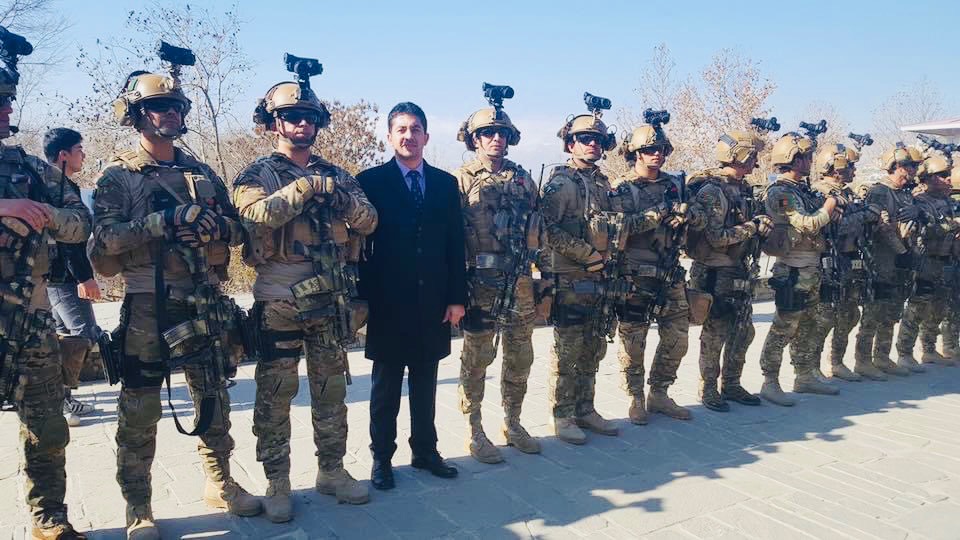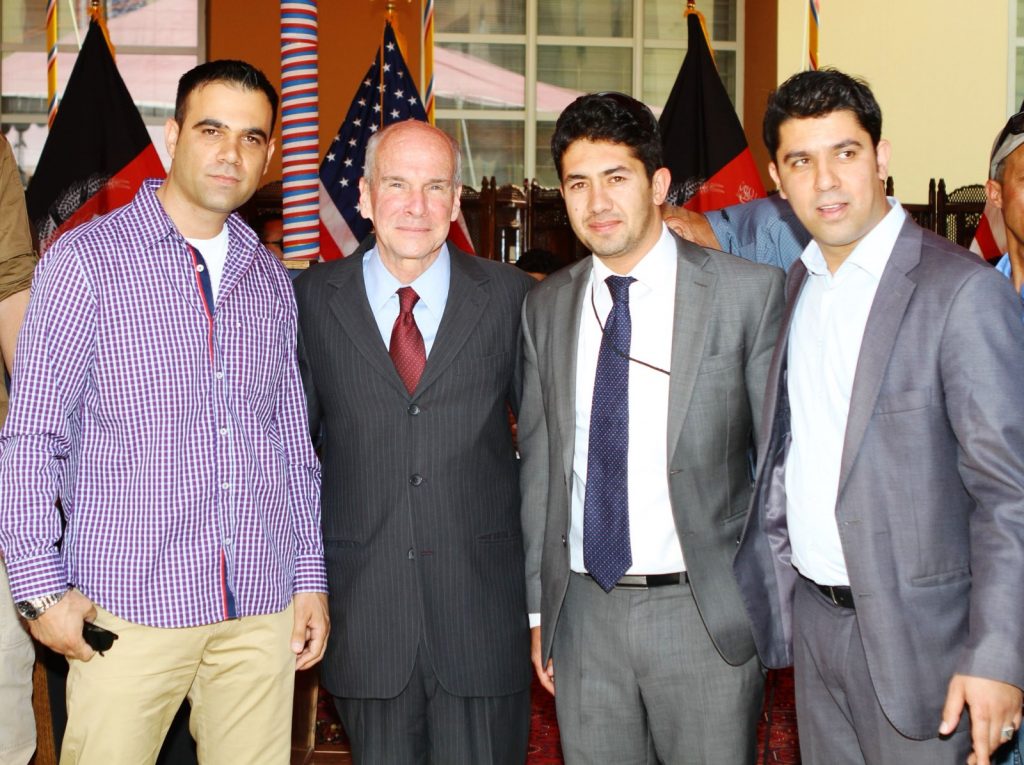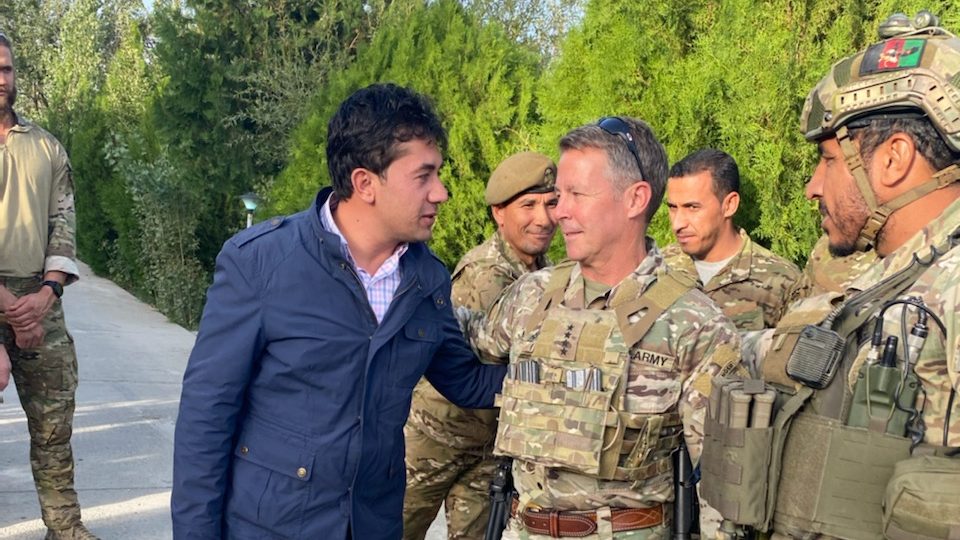Afghan Interpreter Helped U.S. Forces On The Ground For Decades. It Took 3 Years For Him To Reach Safety In Georgia

Bahar Mehr with Afghan special police forces in Kabul, 2017
Courtesy of the International Rescue Committee
Thousand of Afghans who worked with the U.S during the two-decade war in Afghanistan find themselves stuck in their country. The final pullout of U.S troops led to the government’s swift collapse to the repressive Taliban regime earlier this week.
Dystopian, gut-wrenching footage of Afghan civilians crowding the perimeter and tarmac of Kabul’s international airport still dominates international headlines. President Joe Biden said Friday he would continue helping trapped Americans and Afghan allies get out of the country.
One process that could get an estimated 300,000 civilians out: the Special Immigrant Visa, a program meant for Afghan nationals who aided the U.S government and military.
That’s how Bahar Mehr fled with his wife and children, in October of 2020, before settling in Georgia. The 36-year-old served as a local interpreter with U.S. troops on the ground across Afghanistan and as a cultural advisor for the U.S. Embassy in the capital city of Kabul.

Mehr applied for the SIV visa in 2017 and told WABE despite his years of service, the process was lengthy and complex. Aid groups like the International Rescue Committee still estimate there’s a backlog of some 18,000 Afghans waiting for their SIV visa to be approved. IRC officials have said we may never know a close count of how many Afghans are eligible, as many unofficially aided U.S. troops, and aren’t on the government’s radar.
Mehr joined WABE’s “All Things Considered,” and shared why he decided to work with the U.S in the first place. Mehr said his service began around 2007 – and continued as the Taliban’s presence, and threats to his family grew.









